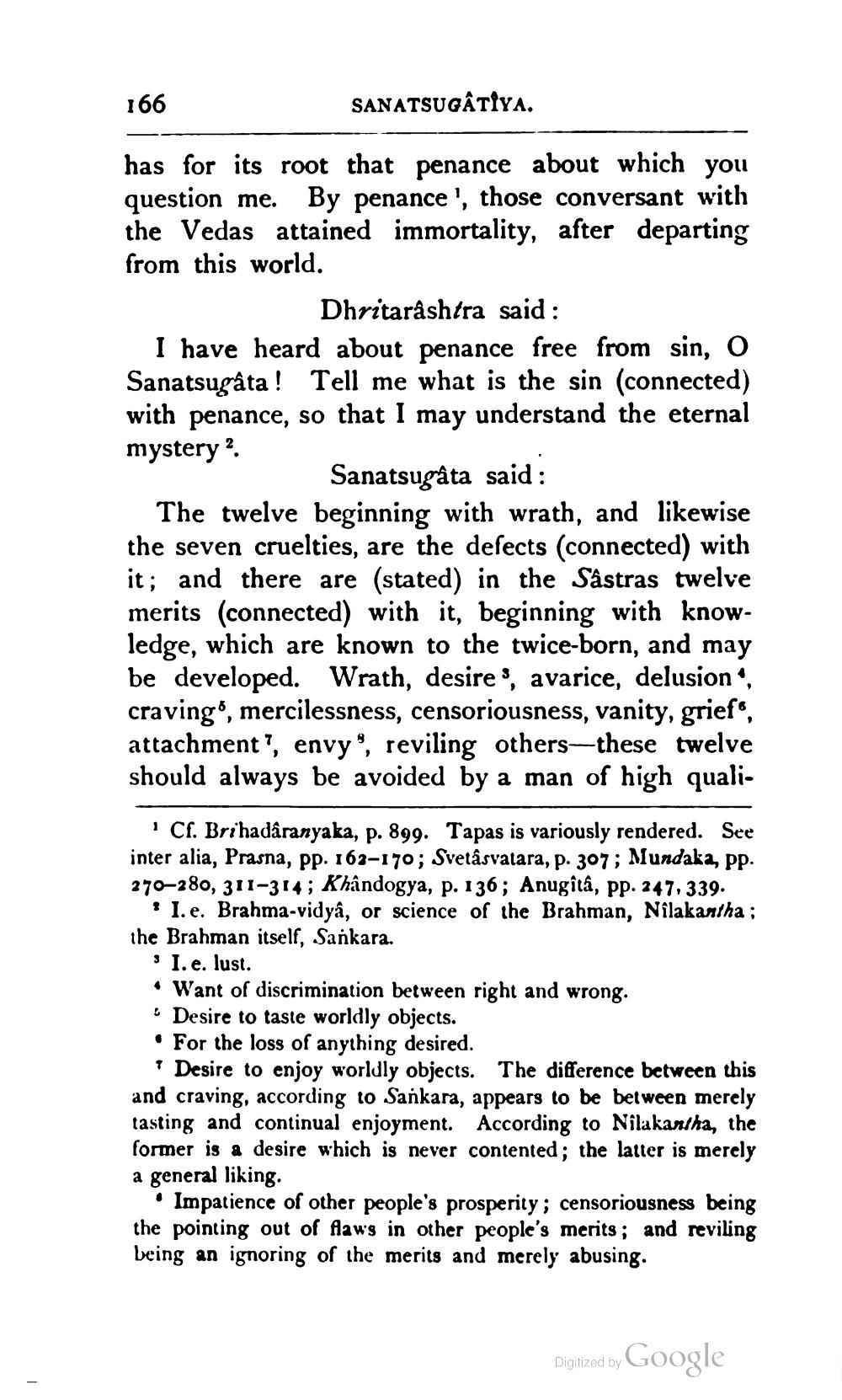________________
166
SANATSUGÂTIYA.
has for its root that penance about which you question me. By penance', those conversant with the Vedas attained immortality, after departing from this world.
Dhritarashtra said: I have heard about penance free from sin, O Sanatsugâta! Tell me what is the sin (connected) with penance, so that I may understand the eternal mystery?
Sanatsugâta said: The twelve beginning with wrath, and likewise the seven cruelties, are the defects (connected) with it; and there are (stated) in the Sastras twelve merits (connected) with it, beginning with knowledge, which are known to the twice-born, and may be developed. Wrath, desires, avarice, delusion“, craving', mercilessness, censoriousness, vanity, grief, attachment?, envy, reviling others-these twelve should always be avoided by a man of high quali
Cf. Brihadaranyaka, p. 899. Tapas is variously rendered. See inter alia, Prasna, pp. 163-170; Svetâsvatara, p. 307; Mundaka, pp. 270-280, 311-314; Khândogya, p. 136; Anugitá, pp. 247, 339.
* I.e. Brahma-vidya, or science of the Brahman, Nilakantha ; the Brahman itself, Sankara.
9 I.e. lust. • Want of discrimination between right and wrong. • Desire to taste worldly objects. • For the loss of anything desired.
Desire to enjoy worldly objects. The difference between this and craving, according to Sankara, appears to be between merely tasting and continual enjoyment. According to Nilakantha, the former is a desire which is never contented; the latter is merely a general liking.
• Impatience of other people's prosperity; censoriousness being the pointing out of Aaws in other people's merits; and reviling being an ignoring of the merits and merely abusing.
Digitized by Google




